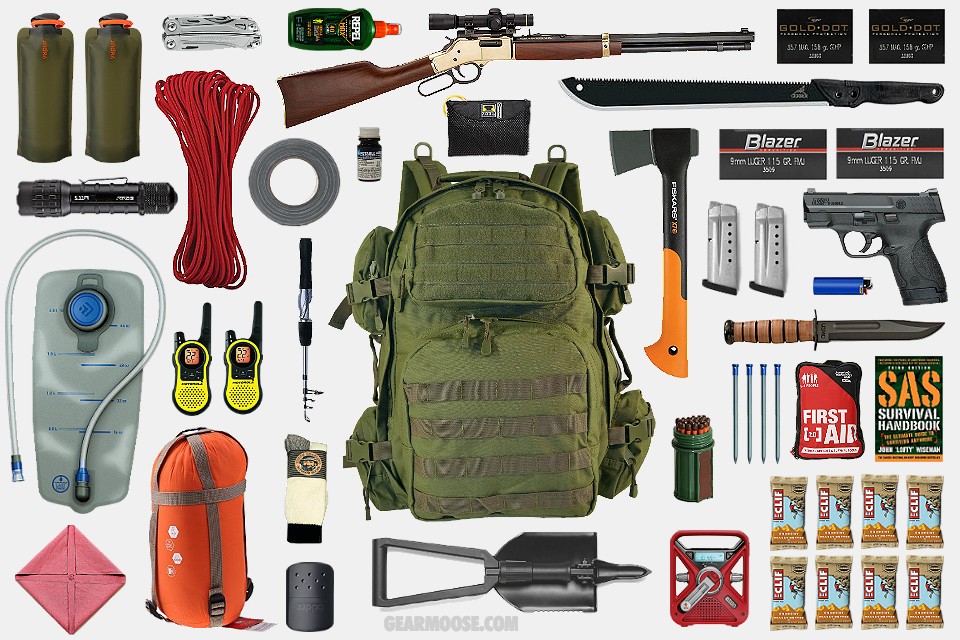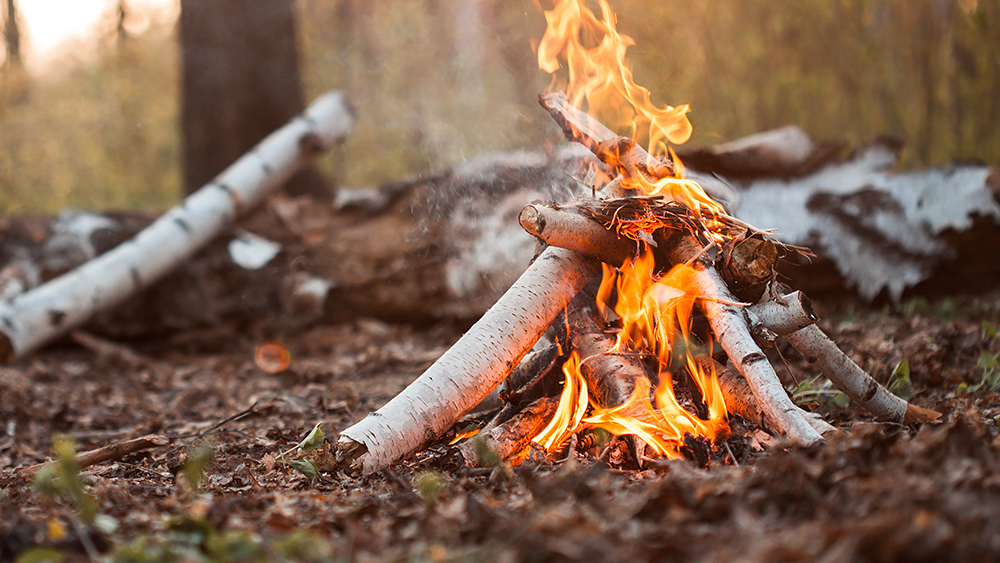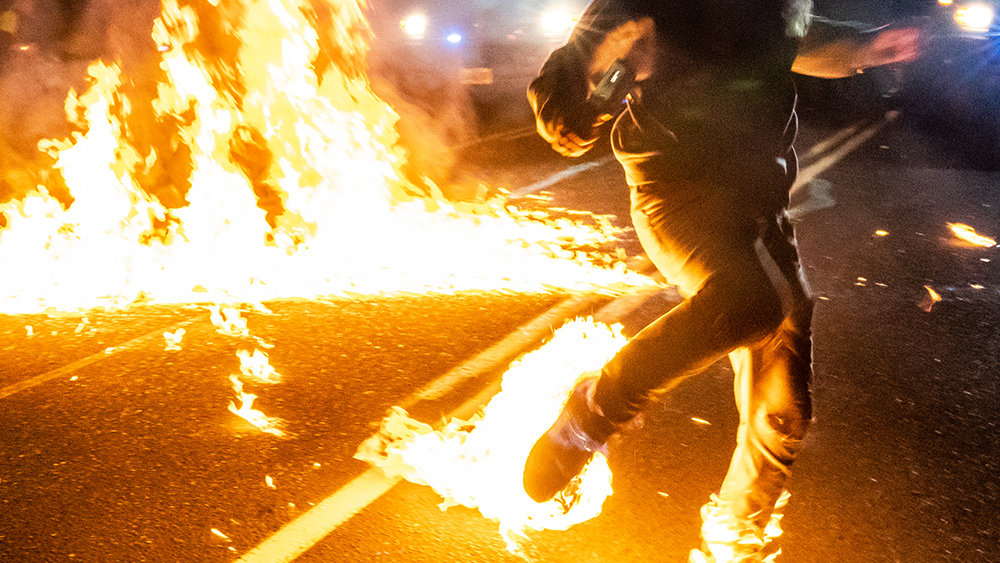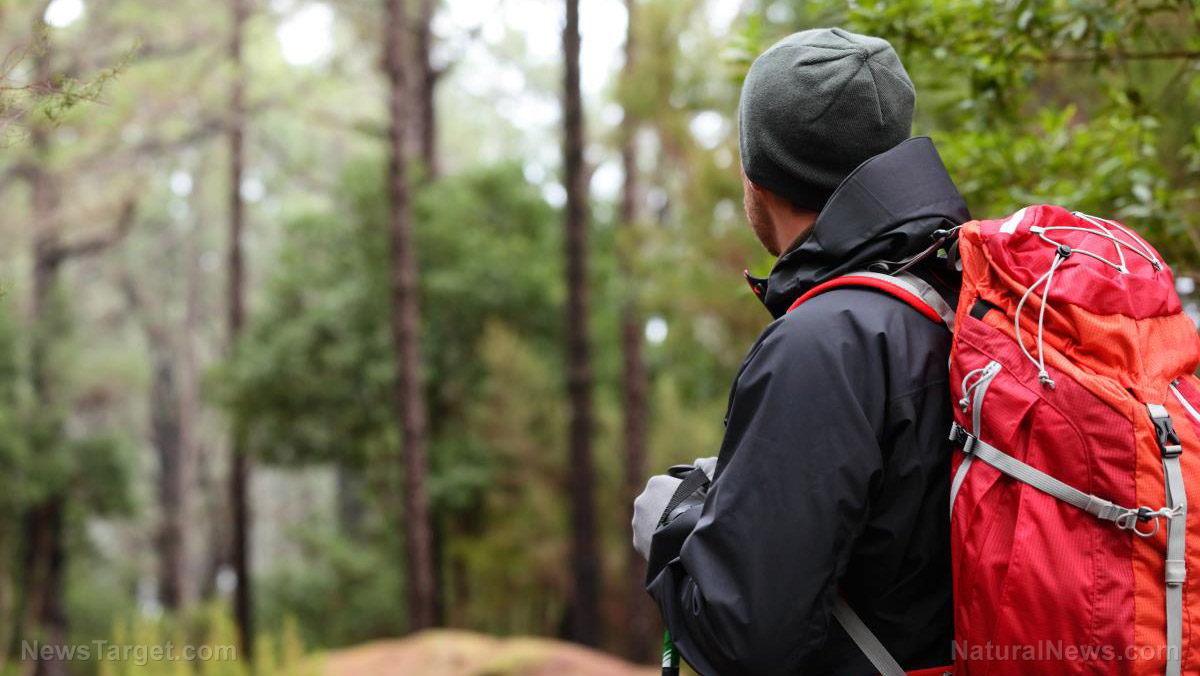
As a prepper, a bug-out bag is essential to increasing your chances of survival when SHTF. But what exactly do you need to pack in your BOB? (h/t to SkilledSurvival.com)
What is a BOB?
A bug-out bag, which is also called a go bag, is a bag packed with supplies that would help you survive for at least 72 hours during a disaster. If your whole family has a fully equipped BOB, everyone could evacuate the minute SHTF.
BOBs usually include items like personal identification (copies of your passport, driver's licenses, social security numbers, etc.), cash, food, a first aid kit, fire-starters, water filters, maps, firearms, ammo, sleeping bags, and shelter (e.g., a tarp or a tent). A BOB may also contain a basic fishing kit and other items that you may need so you could safely reach your secure bug-out location.
4 BOB objectives
When packing your BOBs, you should take care of four critical objectives that would address the Rule of Threes.
Air
You could only survive for about three minutes without air.
Keep filter masks in your BOB so you could breathe even if the air contains pollutants like dust, gases, pollen, and smoke. If you’re worried about nuclear fallout or chemical attacks, get a gas mask.
Shelter
In dangerous temperature conditions, you could survive for three hours without shelter. However, this time frame would be significantly reduced if you're exposed to extreme environments.
Pack a survival blanket or a bivvy sack in your BOB so you could stay warm even in harsh weather. When traveling with a survival group, consider getting larger group shelters like a survival tent or a tarp.
Water
You could only survive for about three days without clean drinking water.
Pack a water bottle and several purification tools in your BOB like a survival straw, a portable water filter, and purification tablets.
Food
You could survive for at least three weeks without food.
To keep your energy up while you're bugging out, pack calorie-dense foods in your BOB.
Items for your BOB
After you take care of these four BOB objectives, you may start packing your supplies and gear. Consider the weight of your pack and your physical condition. Don't make your bag too heavy that you could no longer carry it while traveling on foot.
Clothing
Pack comfortable, high-quality clothing that suits the weather in your area.
- A change of clothes
- Extra socks
- Hat
- Hiking boots
- Sturdy gloves
- Waterproof jacket and pants
Lighting
A portable light source is important when SHTF, especially when night falls and you're still on the road.
- Chemical light stick
- Headlamp
- Solar lantern
- Tactical flashlight
First aid
A fully equipped first aid kit ensures that you could address any minor or major medical emergencies while you're bugging out.
- Anti-bacterial wipes
- Bandages
- Band-Aids
- Daily medications
- Gauze pads
- Medical gloves
- Medical instruments (e.g., forceps, scissors, tweezers)
- Medical tape
- Moleskin (for blisters)
- Pain relievers
- Safety pins
- SAM splint
- Sunscreen
- Tourniquet
- Triangle bandages
Navigation
You should have navigational tools in your bag, even if you're traveling in familiar terrain. These items could help the other people in your group get the lay of the land, especially if you're the only one familiar with the area.
- GPS (standalone and phone app)
- Orienteering compass
- Paper maps
Self-defense
Self-defense, whether for use against looters or wild animals, is crucial when SHTF.
- Ammunition
- Bear or pepper spray
- Firearm
- Survival knife (with a full tang and a solid steel blade)
Fire-starting and warmth
Whatever the weather, you need fire to cook your food and stay warm at night.
- Chemical hand warmers
- Fire-starters
- Portable stove
- Survival lighter
- Waterproof matches (Related: Top 12 NECESSARY items for survival when SHTF.)
Multi-purpose tools
These tools would keep your pack light because they could be used for more than one purpose.
- Duct tape
- Hatchet or saw
- Multitool
- Paracord
Miscellaneous
These miscellaneous items address other issues you may face when bugging out.
- Emergency cash
- Goggles
- Lightweight solar charger and cords for your devices
- Larger solar charger
- Whistle
Important documents
Consider packing print and digital copies (saved on a flash drive) of all important documents. Keep them in a sealed bag in your BOB. Leave the original copies in a fireproof home safe or in a bank safety deposit box.
- Addresses and phone numbers for all contacts
- Insurance information
- Passports and birth certificates (and marriage certificate) for all family members
- Photo inventory of your home (for insurance claims)
- Titles and deeds (e.g., your house, car, other loans documents)
When choosing a bag for your BOB, select a sturdy backpack that you could carry comfortably. Rotate your supplies to prevent spoilage and check your equipment regularly to ensure that they're in working order.
Prepare BOBs for your whole family before SHTF and learn crucial skills that could help you survive while bugging out.
Sources include:
Please contact us for more information.





















